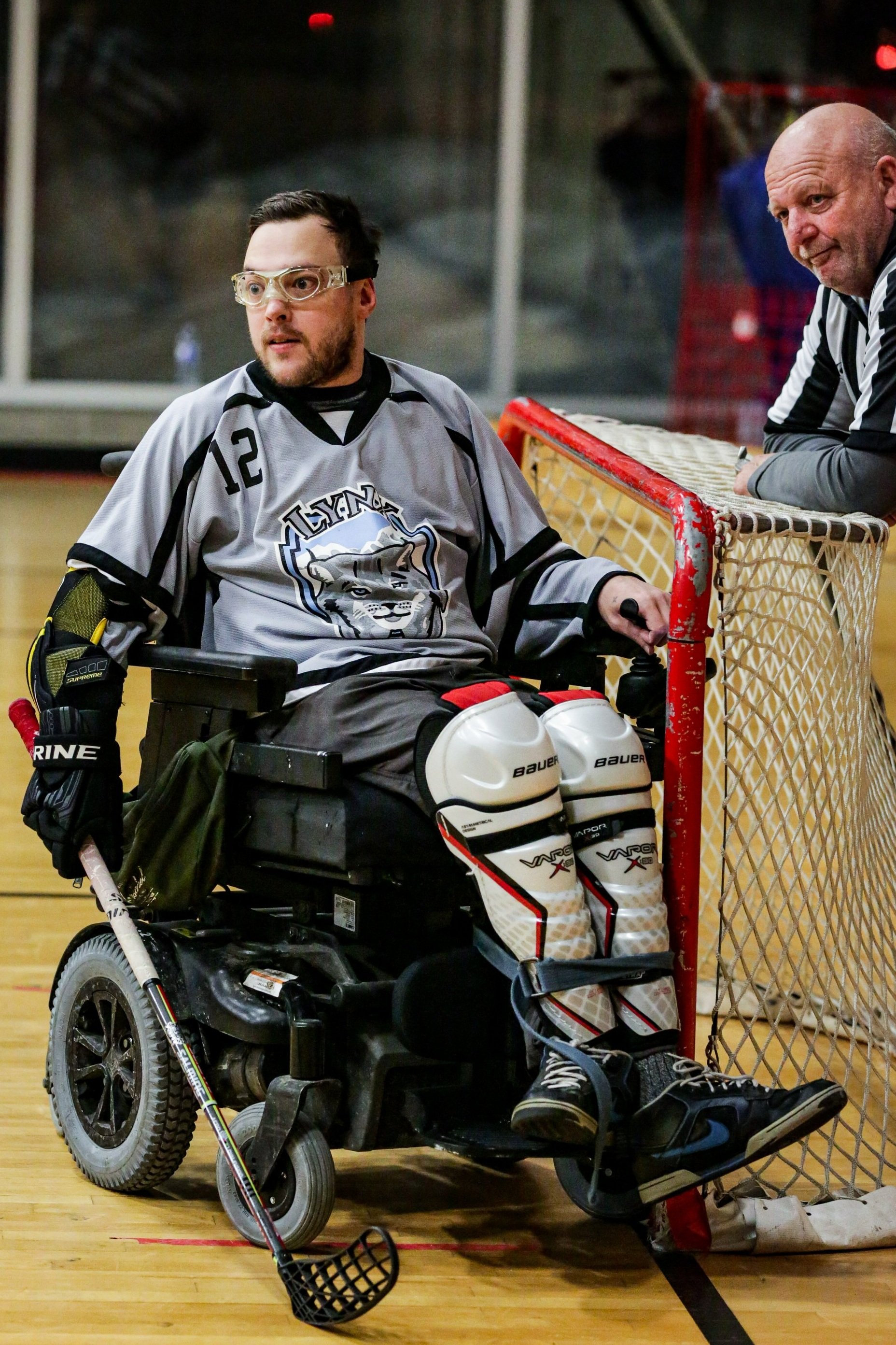Living with Cerebral Palsy: My Path to Accepting my Powerchair
By: Dan Di Poce
Growing up with Cerebral Palsy, my parents were fond of the phrase, “What would you do if we weren’t around?”
As a child, if I was having trouble doing any of my daily routines, my parents would use it as a teaching moment. Once, my dad told me I had to put on a pair of socks by myself. I contorted, sweated, and strained, flopping around on the living room floor like a tasered snake. It took me a God-loving hour and a half to put on (and ruin) a pair of socks, but I did it. My dad picked me up and kissed me on the top of my head.
“I’m proud of you.” The words enveloped me like a warm blanket.
School Days and Intramural Soccer
I was enrolled in a regular school. I was the only physically disabled student in the building from grades one through seven. I had extra help where I needed it, but the teachers and the other kids were advised to treat me the same as everyone else. This was a point of pride for my parents and me. I even played on the intramural indoor soccer team as a goalkeeper. My willingness to get hit in the face, in tandem with the walker I used that took up most of the net and left opposing players with very little to shoot at, made me an integral piece of back-to-back championship squads. These skills, in my mind, were transferable to the professional ranks. I was only 13 at the time, but surely I was on a rocket ship to athletic superstardom, palsy be damned.
I had a warped idea of what being disabled meant. I was involved in plenty of activities and organizations where other disabled kids were. I had disabled friends, but in a very Jesus Christ kind of way, I dwelt among them but was not of them. I didn’t think I was better than them, but I felt like I was better taught. I was more determined. I was independent. I could seamlessly exist in both the disabled world and the able-bodied world and feel at home in both. I did this through my magnetic personality and a deeply ingrained, steadfast belief that I was different. I was going to defeat my disability, or at least mask it to the degree that no one I met would even think it worth mentioning.
Confronting My Disability
Fast-forward to me as a 30-year-old man. I never played goalkeeper professionally—not even in the MLS. The symptoms of Cerebral Palsy tend to get worse as you age, even when you remain relatively active and pretend your Cerebral Palsy doesn’t exist. I found myself strangely unequipped for the challenges I now faced. I was less stable on my feet, and the excessive walking I insisted upon doing when I was younger—that my doctors advised me not to do—had caused repetitive stress injuries and pain so intense that I needed prescription painkillers to deal with it. It was taking me longer to do the ordinary tasks I was used to doing. The worst part was that I didn’t know how to ask for help. More accurately, I wouldn’t let myself ask for help. I couldn’t stomach not being independent. I was hellbent on maintaining my sovereignty, even if it ruined me because I was not disabled. Not really.
Entering the World of PowerHockey
Things progressed. Which is to say they got worse. I was still too proud to admit that anything was wrong or that I should change anything at all. I was too sore and tired to work effectively, go out with friends, or even keep my fridge stocked. I had a powerchair at this point, but using it was akin to admitting defeat. All I could do was sleep, eat takeout, take pills, and play video games. But at least I wasn’t disabled.
I got a message from a friend one day. I met him in the disabled world, and I liked him. He told me he played PowerHockey—hockey played in powerchairs on a court.
“Come play hockey this Friday. Do you have a powerchair?”
I was intrigued because it combined two things I loved: competitive team sports and my newfound love of sitting down. And while I wasn’t the athletic tour de force I was when I was 13, I could almost certainly waltz onto the court and be a star player within a few games. Because I was not disabled. And I’d prove it.
I accepted the invitation and was ego-slapped by nearly everyone on the court that night. I wasn’t so deluded that I thought I’d be the best immediately, but I expected to fare much better than I did. I was against players I thought were “less able” than me, and I was embarrassed in every facet of the game. A well-adjusted person would have taken it in stride, but I felt humiliated. I was spectacularly wrong, and I was forced to confront the misconceptions I had about others and, crucially, forced to come to terms with my disability—the disability I most certainly had. When I eventually accepted it, I had nothing left to hide. I could begin to enjoy life again with a more honest reflection of who I was, not who I thought I needed to be.
Finding Freedom
I’m 38 years old now, and I’m independent. I’ve gotten to know a lot of attendants, and all of them are better at putting my shoes and socks on than I am. They’re also much faster and better at organizing. Sometimes I even let them cook. The availability of a flexible attendant services platform like Whimble would make my newfound freedom that much easier. I work better, I eat better, I sleep better, and I have less pain. I’m a better son, a better brother, a better friend, and a better partner. I started to use my powerchair for long outings. I went back to hockey, and I keep going every week. In eight years, I’ve made lifelong friends and met my incredible girlfriend. We travelled to the US, Australia, and Switzerland to play hockey, and we even travelled to Paris as a team. I still can’t drive, shoot, control the ball, or see the court, but no one is more willing to be hit in the face. That’s what makes a goaltender.
We’re live in Ottawa! Join our beta here if you’re in the city. For those outside of Ottawa, join the waiting list here so we know where to expand next!
Header image (PowerHockey players) via University of St. Thomas
Dan is a Toronto-based writer with a journalism diploma from Humber College. He's an avid sports enthusiast, particularly passionate about PowerHockey. Traveling with his team, Dan explores new locations, competes fiercely, and captures his experiences with vivid storytelling. As a user of attendant services, he is excited for Whimble’s plans to expand into Toronto.


